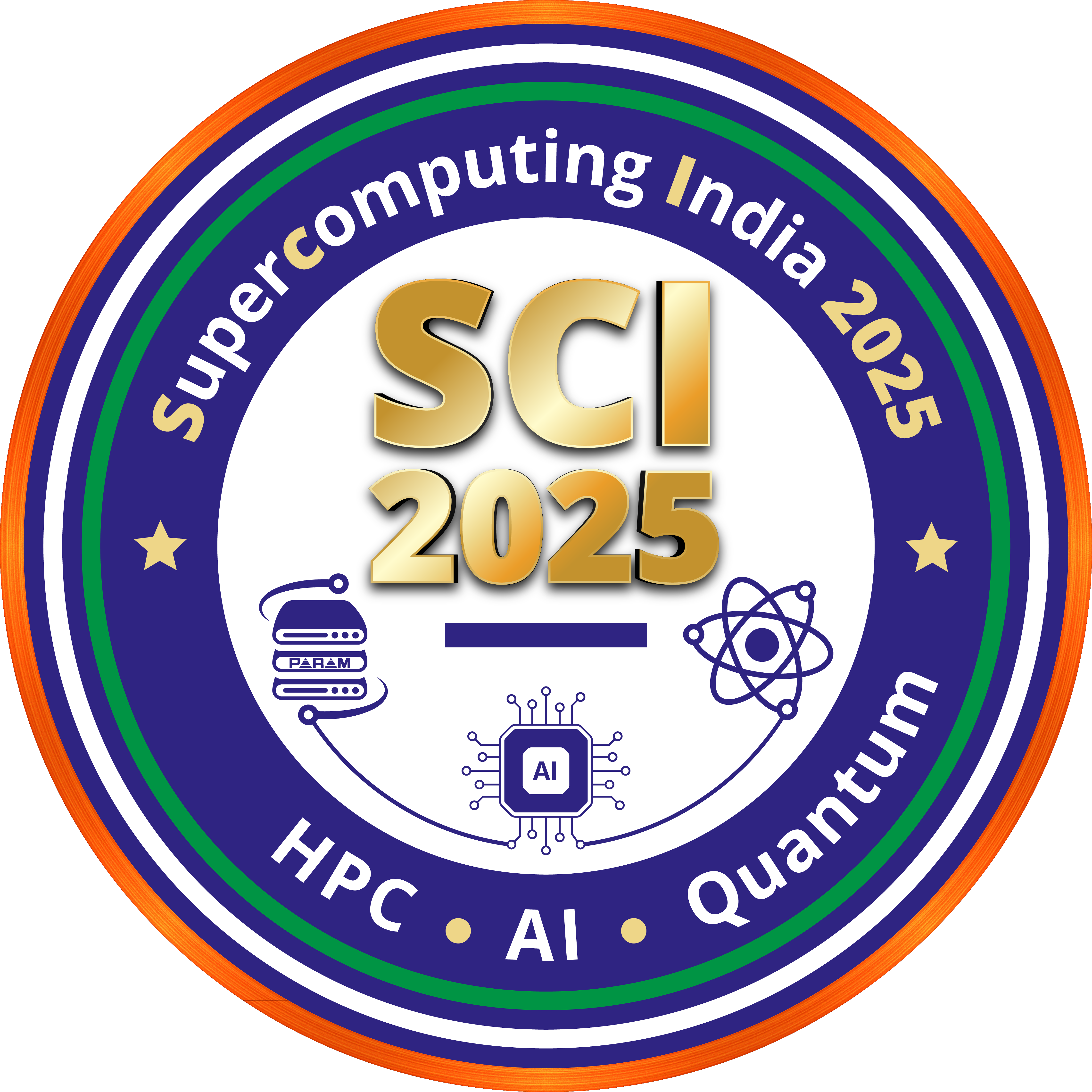
SCI2025 is the inaugural edition of the Supercomputing Conference series in India, envisioned to catalyze the next wave of breakthroughs in exascale systems, quantum-classical integration, and AI-accelerated computing — strengthening India’s leadership in advanced computing and innovation.
Explore SCI2025Supercomputing India 2025 marks a pivotal moment in India’s digital and technological evolution. This landmark event will unite key stakeholders shaping the nation’s future — from scientists and engineers to policymakers, industry leaders, start-ups, and students.
Anchored by transformative national initiatives such as the National Supercomputing Mission (NSM), Digital India, India AI, India Semiconductor Mission, and the National Quantum Mission (NQM), SCI2025 will showcase innovation at the convergence of HPC, AI, and Quantum Computing.
With exascale computing, AI-driven discovery, and quantum-classical hybrid systems on the horizon, this conference is both a celebration and a catalyst — propelling India toward technological self-reliance and global leadership. Organized by C-DAC under MeitY, SCI2025 will spotlight applications across climate modeling, healthcare, space, materials science, and defense.
The National Supercomputing Mission is a transformative initiative by the Government of India to democratize access to world-class computational power and infrastructure nationwide.
Jointly steered by the Ministry of Electronics and Information Technology (MeitY) and the Department of Science and Technology (DST), and implemented by C-DAC and IISc, NSM drives cutting-edge R&D, capacity building, and innovation across academia, industry, and research.
By enabling equitable access to advanced supercomputing resources, NSM fuels technological excellence and supports strategic sectors, from weather forecasting to pharmaceutical design, and more.
C-HUK, established by C-DAC Bengaluru under the Human Resource Development (HRD) initiative of the National Supercomputing Mission (NSM), focuses on inclusive skill development in High Performance Computing (HPC) and allied emerging technologies.
Targeting SC, ST, Women, and EWS candidates, C-HUK provides expert training in HPC, AI, Embedded Systems, and Cyber Security to build a skilled and diverse tech talent pool.
Its programs include a comprehensive 6-month Advanced Certificate Course in HPC, 5-day Faculty Development Programmes (FDPs), conducted in Bengaluru and the North Eastern region in collaboration with C-DAC’s Centre in North East (CINE).
Through the Blended Learning Programme (BLP), C-HUK delivers flexible, scalable content via the IEEE BLP Platform to learners across the globe.
C-HUK is instrumental in nurturing an inclusive, future-ready HPC ecosystem in alignment with India’s vision for digital empowerment and growth.